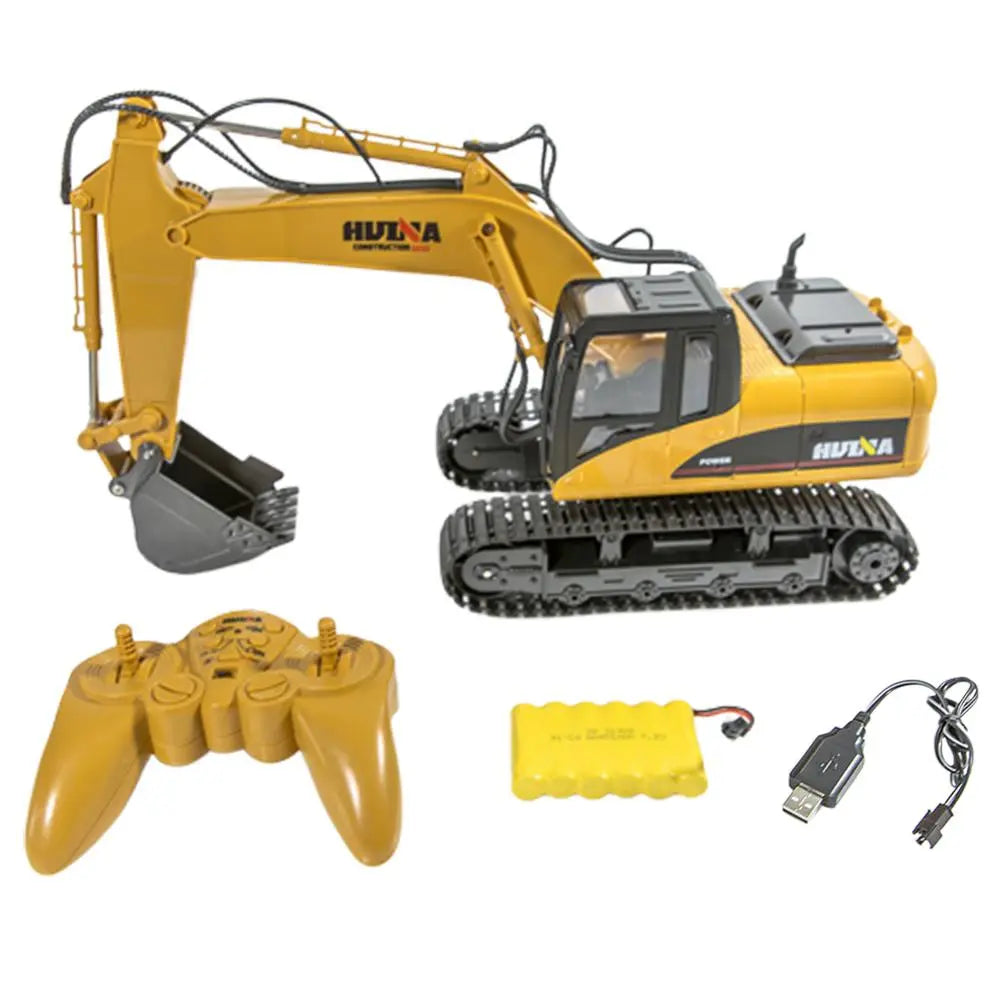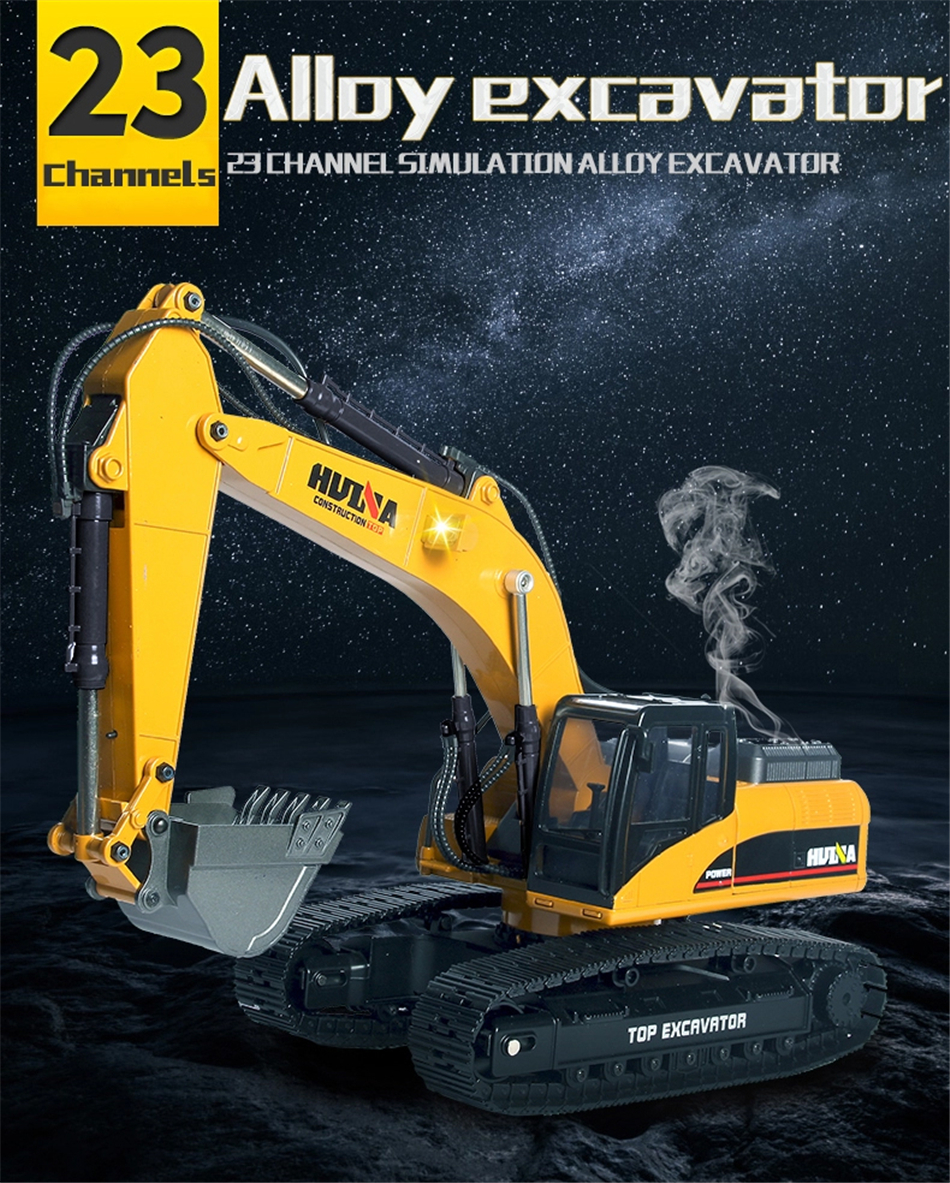Discover the Significance of Excavator in Modern Building And Construction Projects
Excavators are essential tools in modern building projects. Their flexibility allows them to execute a variety of tasks, from digging and grading to demolition and site prep work. Advanced features, such as hydraulic accessories and general practitioners, improve their capabilities and efficiency on task sites. As the sector advances, the relevance of excavators grows even much more. Recognizing their role can expose understandings into the future of building methods. What lies ahead for these devices?
The Versatility of Excavators in Numerous Projects
Excavators are often linked with large construction jobs, their convenience enables them to be utilized in a wide variety of applications, from household landscape design to energy maintenance. In city settings, excavators can browse limited rooms to dig foundations for homes or install drainage systems. Their capacity to perform delicate jobs makes them suitable for landscaping jobs, where they can dig deep into for ponds or plant trees. Furthermore, excavators play an important duty in energy maintenance, effectively digging trenches for pipes or wires without interrupting surrounding locations. In farming applications, they help in land cleaning and soil preparation. Additionally, their adaptability enables them to be equipped with numerous accessories, enhancing their performance across different tasks. This complex nature of excavators not only enhances various construction processes but likewise demonstrates their indispensable function in contemporary facilities growth and maintenance.
Key Features and Kinds Of Excavators
The discussion on crucial features and kinds of excavators highlights the crucial features that make these devices vital in building and construction. Different excavator kinds, each developed for details jobs, demonstrate their flexibility and performance across different applications. rc excavator. Recognizing these categories and attributes is important for maximizing their usage in modern-day building and construction jobs
Excavator Keys In Summary
Excavators play an essential duty in modern-day construction, using convenience and efficiency throughout various tasks. These hefty machinery devices come in several kinds, each customized for details applications. The most usual kinds include crawler excavators, known for their security on irregular surface, and rolled excavators, which give better wheelchair on smooth surfaces. Miniature excavators are preferred for small jobs and limited areas, while long-reach excavators are developed for deep digging. Furthermore, there are customized excavators, such as hydraulic excavators, which enhance power and precision. Each type features distinct abilities, making them crucial for jobs varying from excavating and grading to demolition and material handling. Recognizing these variants enables building and construction professionals to select the ideal excavator for their job requires.
Trick Includes Explained
Understanding the crucial functions of excavators boosts their effective application in building and construction projects. Excavators are identified by their effective hydraulic systems, which supply the necessary pressure for digging, lifting, and moving products. Their verbalized arms enable a vast array of movement, promoting accurate operations in restricted areas. Furthermore, the variety of add-ons, such as buckets, grapples, and augers, broadens their versatility to meet various project needs. The size and weight of excavators also contribute to their stability and maneuverability on different terrains. Moreover, developments in innovation have led to the combination of general practitioner and automation, enhancing precision and effectiveness in excavation jobs. These features jointly position excavators as important devices in modern building.
Applications in Building and construction
Changing construction websites, excavators play a pivotal function throughout different applications, ranging from property structure jobs to large-scale infrastructure growths. These functional devices are furnished for tasks such as excavating foundations, trenching for utilities, and site grading. Various types of excavators, consisting of crawler, wheeled, and mini excavators, offer certain advantages customized to the task requirements. Crawler excavators excel in harsh surfaces, while rolled excavators provide mobility on smooth surfaces. Tiny excavators are suitable for confined spaces, making them prominent in urban setups. The effectiveness and power of excavators substantially quicken construction procedures, ensuring prompt job conclusion. Their adaptability better boosts their significance, permitting building and construction groups to take on a diverse range of difficulties successfully.
Enhancing Efficiency and Productivity on Work Sites
Making best use of efficiency and performance on job sites is an important objective in modern-day construction. Excavators play an essential function in attaining this goal by simplifying numerous jobs. Their capacity to carry out several functions-- such as excavating, lifting, and grading-- lowers the demand for additional tools, consequently saving time and resources.Moreover, excavators improve workflow by allowing for faster conclusion of projects. With sophisticated features like hydraulic attachments and GPS modern technology, they can implement accurate procedures that reduce errors and rework. This accuracy not just improves the top our website quality of job but additionally enhances material usage, contributing to cost savings.The convenience of excavators permits them to adapt to various site conditions, guaranteeing that jobs advance smoothly regardless of challenges. By integrating excavators right into construction procedures, groups can considerably enhance their overall efficiency, bring about prompt job conclusion and increased productivity.
Safety Advantages of Utilizing Excavators
Excavators significantly improve security on building and construction sites via improved driver visibility and decreased hands-on labor risks. By supplying operators with a clear sight of their environments, excavators help to avoid injuries and accidents. In addition, the equipment minimizes the requirement for workers to take part in unsafe manual jobs, even more promoting a much safer workplace.
Enhanced Operator Exposure
Building and construction sites can be disorderly and filled with potential dangers, enhanced operator visibility plays a vital role in making certain security when making use of excavators. Modern excavators are designed with large, unobstructed home windows and purposefully put mirrors, allowing operators to maintain a clear sight of their environments (rc excavator). This boosted visibility is important for detecting pedestrians, various other equipment, and numerous obstacles, considerably lowering the threat of accidents. Furthermore, several excavators incorporate sophisticated technology, such as sensors and electronic cameras, to give drivers with additional viewpoints, further improving awareness. The capability to see more plainly not only help in efficient procedure yet likewise promotes a much safer workplace, making it simpler for drivers to browse complicated building websites without compromising safety criteria
Decreased Manual Work Dangers
When manual work is lowered with using excavators, countless security benefits arise, significantly enhancing the health of building workers. Excavators lessen the physical stress related to hefty lifting and recurring jobs, effectively reducing the risk of musculoskeletal injuries. By automating procedures such as excavating, grading, and moving products, they permit employees to preserve a more secure distance from potential hazards. In addition, excavators are outfitted with sophisticated safety and security features, get redirected here such as rollover security systems and improved operator ergonomics, which further secure workers on site. The result is a considerable reduction in office accidents and injuries, causing increased efficiency and spirits among construction teams. Inevitably, the fostering of excavators adds to a much safer and a lot more effective building and construction environment.
Excavators in Earthmoving and Website Prep Work
In modern-day building and construction, a substantial part of earthmoving and site prep work jobs counts on the efficiency and convenience of excavators. These equipments are created to manage various dirt types and terrain, making them important for grading, excavating, and trenching activities. Their hydraulic arms can be geared up with various attachments, such as augers and containers, allowing drivers to tailor their method based upon details project requirements.Excavators excel at relocating huge quantities of earth rapidly and efficiently, which accelerates the overall construction timeline. They can navigate tight rooms and testing websites where typical devices may battle, enhancing productivity. Furthermore, the accuracy of excavators assurances that site preparation complies with rigorous specs, minimizing the danger of mistakes that could cause costly rework.
The Role of Excavators in Demolition Tasks
Excavators play a vital role in demolition jobs, as they have the power and agility required to take down frameworks effectively. Outfitted with numerous accessories such as hydraulic breakers, shears, and grapples, these makers can adjust to various demolition demands, whether for small structures or big commercial sites. Their flexibility enables drivers to tackle complex projects while preserving safety and precision.In enhancement to their demolition abilities, excavators help with particles removal, ensuring that job sites stay safe and well organized. By breaking down frameworks right into workable pieces, they enable structured clearing up and recycling of materials, aligning with contemporary sustainability efforts.Moreover, excavators can access tight rooms and navigate unequal terrain, making them essential in metropolitan demolition jobs. On the whole, their robust design and multifunctionality make excavators a critical possession in the demolition stage of building and construction, adding considerably to project timelines and performance.


Future Trends in Excavator Modern Technology and Use
As the construction industry evolves, developments This Site in excavator innovation are positioned to change their usage and efficiency considerably. One significant trend is the assimilation of automation and expert system, enabling excavators to run with marginal human intervention. This shift will certainly improve precision in jobs such as grading and trenching, minimizing human mistake and increasing productivity.Additionally, the increase of electric and hybrid excavators is shaping a more lasting construction environment, lowering carbon emissions and fuel costs. Boosted telematics systems are likewise emerging, allowing real-time monitoring of machine efficiency and maintenance requirements, which can cause much better functional efficiency and longer devices lifespan.Moreover, improvements in add-on modern technology are broadening the flexibility of excavators, enabling them to perform a broader series of jobs. The mix of these patterns demonstrates a future where excavators are smarter, greener, and more versatile, ultimately improving construction project characteristics.
Often Asked Questions
Exactly How Do Excavators Contrast to Various Other Construction Machinery?
Excavators, identified by their adaptability and power, master digging and earthmoving compared to other equipment. Their capacity to do different tasks, consisting of lifting and demolition, makes them essential in building and construction tasks, enhancing overall performance.

What Is the Typical Life-span of an Excavator?
The average life expectancy of an excavator typically varies from 7,000 to 10,000 operating hours, depending on maintenance, usage problems, and design. Correct treatment can extend this lifespan, guaranteeing peak performance throughout its operational years.
How Are Excavators Maintained for Optimum Performance?
Excavators call for regular maintenance for peak efficiency, including routine evaluations, fluid checks, filter replacements, and prompt repair work. Implementing a preventive upkeep schedule aids extend their lifespan and assurances effective procedure in various building and construction atmospheres.
What Are the Prices Associated With Renting vs. Acquiring an Excavator?
The expenses connected with getting an excavator versus renting out differ considerably. Leasing deals reduced upfront costs but can build up in time, while acquiring requires a significant preliminary financial investment, but supplies lasting cost savings and possession possession benefits.
What Training Is Needed to Run an Excavator?
Running an excavator calls for specialized training, commonly including safety and security protocols, maker operation techniques, and ecological awareness. Qualification programs frequently mandate useful experience, allowing drivers to manage different tasks effectively while guaranteeing conformity with market policies. The most typical kinds include crawler excavators, understood for their security on unequal terrain, and wheeled excavators, which offer higher mobility on paved surfaces. Tiny excavators are favored for small tasks and limited spaces, while long-reach excavators are made for deep excavating. Furthermore, there are specific excavators, such as hydraulic excavators, which improve power and accuracy. Different kinds of excavators, including crawler, rolled, and mini excavators, offer particular benefits tailored to the job demands. Spider excavators succeed in rough surfaces, while rolled excavators provide wheelchair on smooth surface areas.
Comments on “Why a rc excavator Is Crucial for Safety and Precision in Construction Projects”